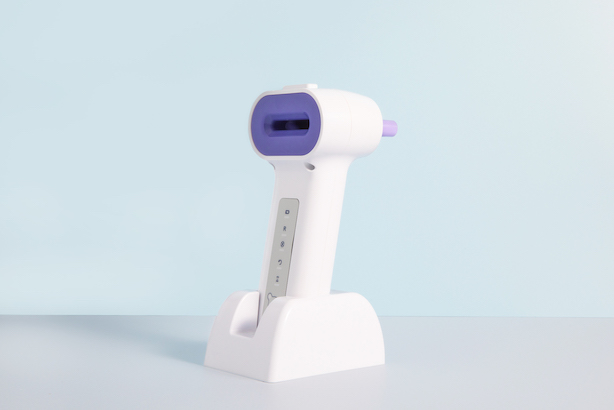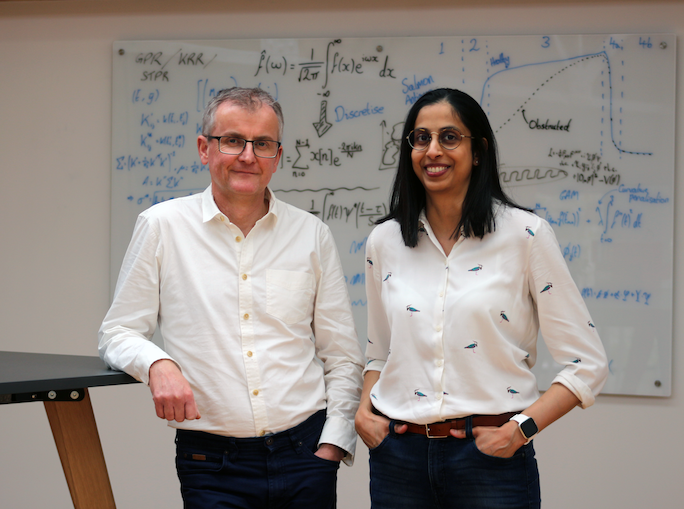Business
This UK startup plans to radically shake-up the antiquated word of COPD measurement

In 1846, London surgeon John Hutchinson invented the spirometer, a thing you blow hard into, to measure the volume of air inspired and expired by the lungs. It’s a pretty basic idea. Incredibly, since then, the technology has barely evolved. Today, the modern spirometer doesn’t even measure the amount of CO2 expelled by the lungs, a crucial data point for assessing chronic obstructive pulmonary disease (COPD).
Now a Cambridge, UK startup has come up with a radical new technology device that, it claims, is affordable, portable, requires minimal training, and also measures CO2.
Healthtech company TidalSense has now closed a £7.5m ($9.3m) fundraising round led by UK-based investors BGF and Downing Ventures.
The Cambridge-based company says its handheld medical device (N-Tidal) detects changes in lung function sensitively and enables quicker, more accurate and automated diagnosis of COPD. The ability to measure asthma problems is in the product road-map.
COPD is the third leading cause of death worldwide, causing 3.23 million deaths in 2019 according to the World Health Organization. And because of the rise in pollution levels across the world, it’s likely to get worse.
Despite the 1840s technology, the market for Spirometers is projected to be worth $616 Million in 2023 and is further poised to grow at a CAGR of 5.4%, to hit US$ 1042.3 million by 2033.
However, Spirometers are easily fooled when patients vary how hard they blow, and they cannot easily distinguish between different types of respiratory conditions or provide information on the severity of the condition. Plus it will also take about 30 minutes to test a patient with a Spirometer. In England alone, 200-250 per 500,000 of the population are awaiting a diagnostic test driving waiting times of up to 5-10 years.
TidalSense says its N-Tidal device can measure a patient’s breathe in less than five minutes, and send the data to a Cloud-based platform via 2G networks.
Indeed, I tried the device out myself, and, sure enough, it measured the state of my lungs in (more like) less than 3 minutes.

TidalSense team
In an interview with TechCrunch, co-founder Dr Ameera Patel (pictured, right), CEO of TidalSense and an asthma sufferer herself, told me: “This hardware has been developed for eight years. There’s several patents on it now. The sensor measures every single molecule of carbon dioxide that comes out of your lungs. What we’ve discovered with collecting all this data is that we can tell really sensitively when your lungs are getting worse.”
She says the problem is that people don’t know when they’re symptomatic: “They don’t know when they’re getting sicker. This device will tell me immediately and I’ll know to increase my inhalers. It’s the difference between being able to manage your symptoms and suddenly landing in hospital because you had no data on the lead-up to things getting worse.”
The company says it has benchmarked the device on over 1000 patients, collecting over 2.3 million breaths from patients through clinical studies and trials.
“We’re getting really really high accuracies on diagnosing COPD because fundamentally, in COPD, your lung structure changes. From the data we built very accurate diagnostic tests, which we’re looking to commercialise with the funding,” Patel added.
Tim Rea, Head of Early Stage Investments at BGF commented in a statement that “this solution is a prime example of where advanced machine learning techniques can be applied to deliver faster diagnostics, greater efficiencies and better patient outcomes.”
-

 Entertainment4 days ago
Entertainment4 days agoHow to watch the Golden Globes live without cable
-

 Entertainment5 days ago
Entertainment5 days agoCES 2025: Everything to expect
-

 Entertainment6 days ago
Entertainment6 days agoDating apps don’t work as well as you think they do
-

 Entertainment4 days ago
Entertainment4 days agoCarter’s UFO hounded him for years. Few knew his expertise in astronomy.
-

 Entertainment4 days ago
Entertainment4 days ago2025’s biggest movie anniversaries: ‘Jaws’ to ‘Batman Begins’ and beyond
-

 Entertainment2 days ago
Entertainment2 days agoGolden Globes winners 2025: Here’s the full list
-

 Entertainment5 days ago
Entertainment5 days agoTop 5 CES 2025 announcements I can’t wait to see
-

 Entertainment1 day ago
Entertainment1 day agoAcer Nitro Blaze 11 at CES 2025: A Switch and a gaming laptop have a huge baby

















